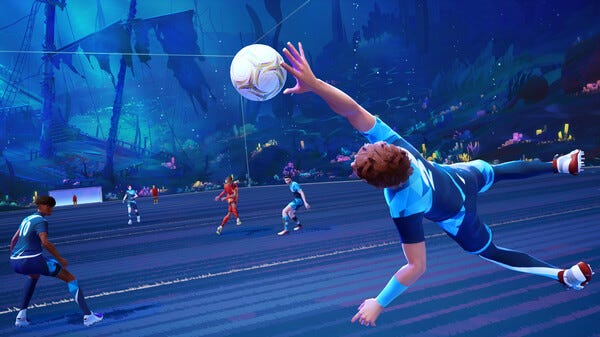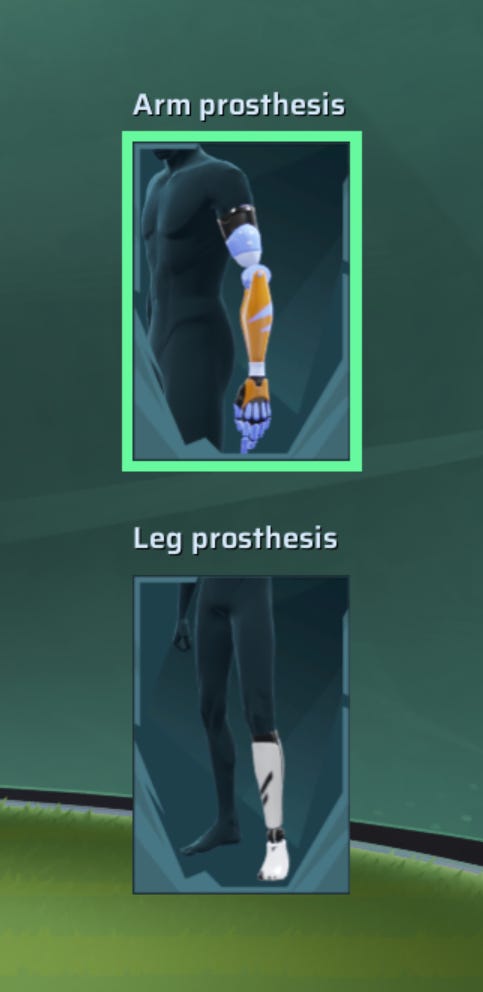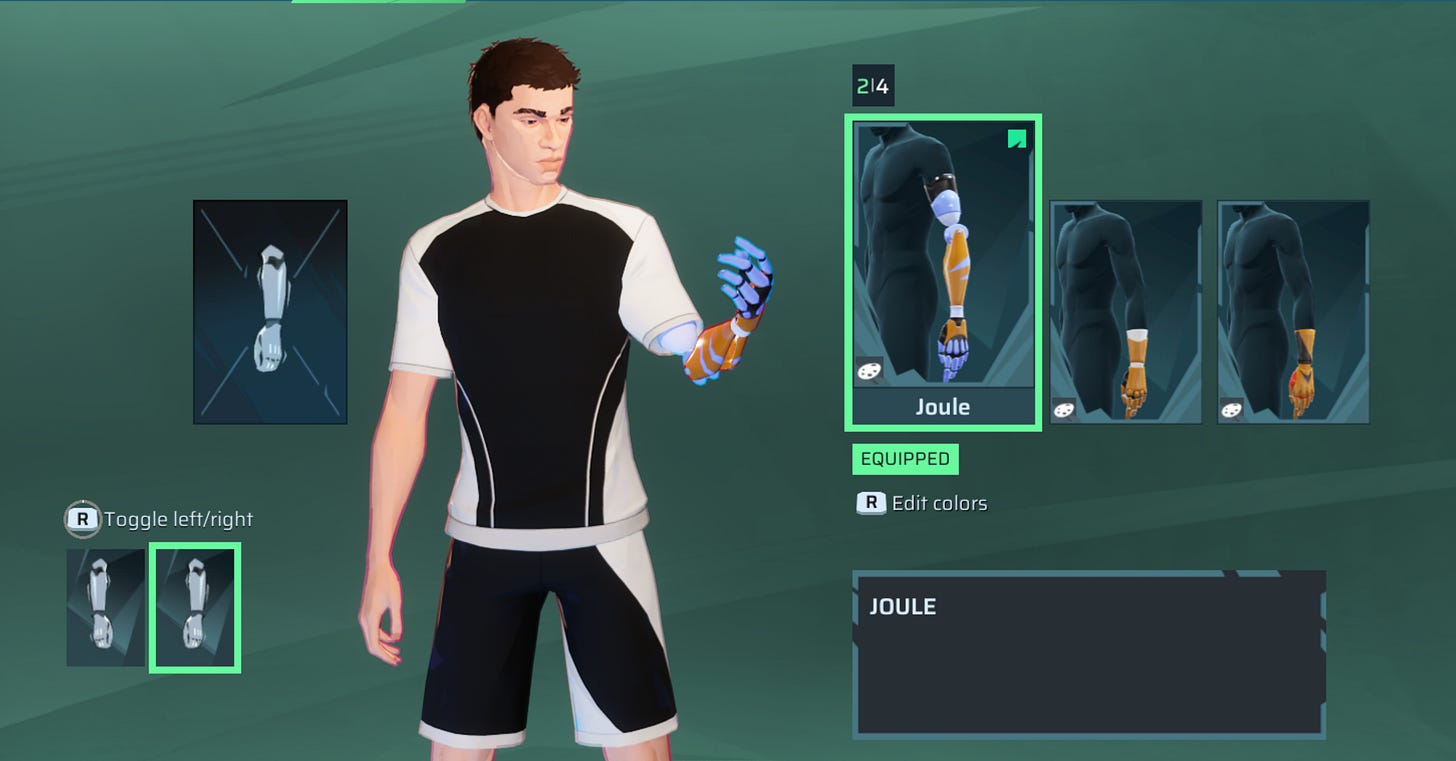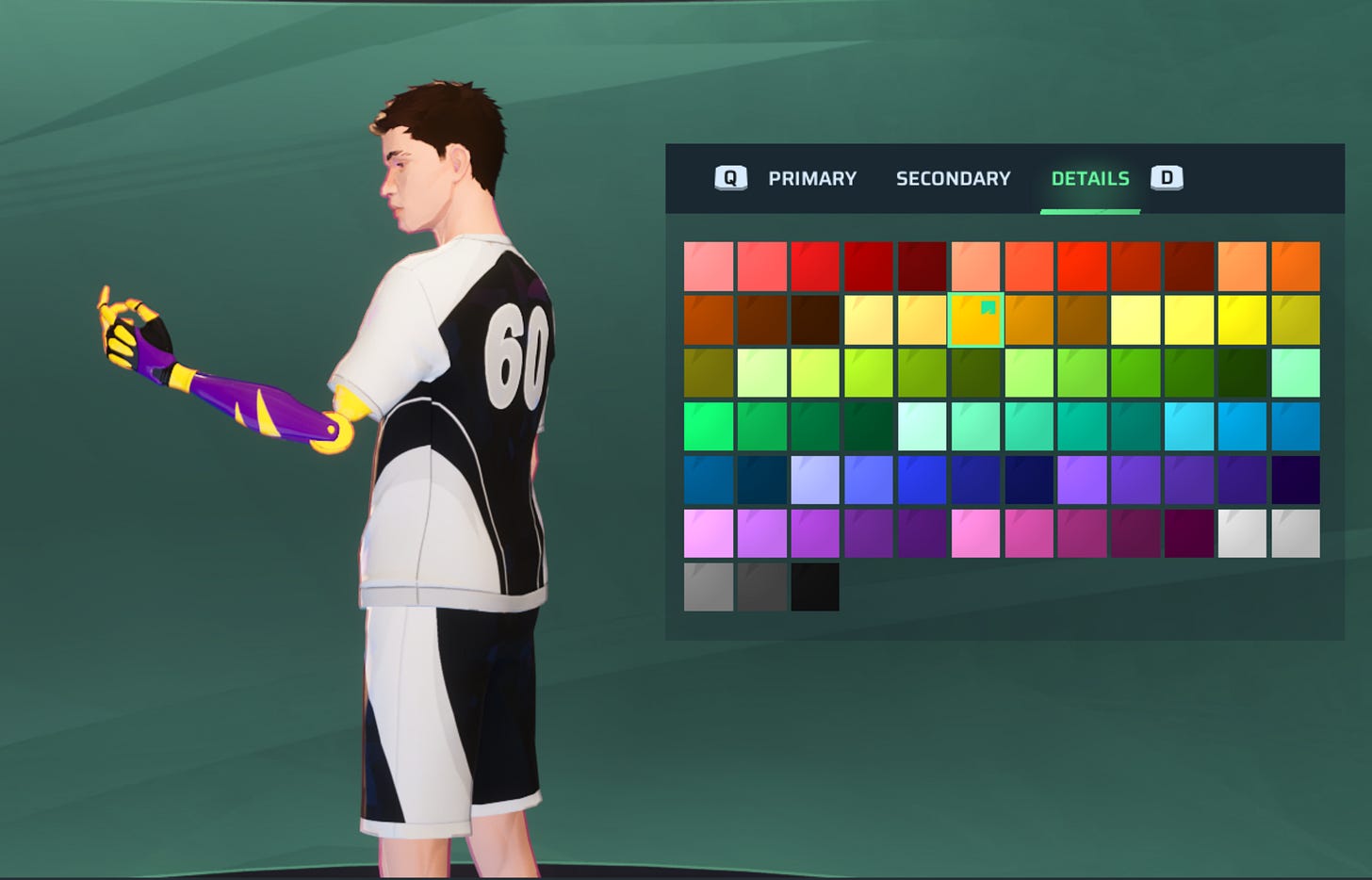
Sloclap’s Rematch, just released in a little over a week ago, is taking sports gaming by storm this summer. While there are some frustrations—fighting to get the controls to do what you want, rubberbanding and lag—for the most part, the game has been offering smooth, fast-paced, arcade-style football (or soccer) gameplay akin to Rocket League, and it’s been a whole lot of fun—even if I’m terrible at it. The gaming world seems to agree, as the developer has announced they’ve passed the 1 million sales mark.
The game has a decent character creator where you can design some pretty slick, customizable uniforms, but the real standout is the representation for disabilities and prosthetics.
You first get to pick whether you want an arm or leg prosthesis, or both.
Next, you get to choose which style and look you want for the chosen limb, with three varieties to choose from for arms and two for legs.
Finally, you get to customize the color of your prosthesis, including the primary, secondary, and tertiary colors, granting a wide array of possibilities. If you wish, you can create a prosthetic limb that matches your uniform or one with wildly contrasting colors that stands out and draws attention to the prosthesis.
The reason I wanted to highlight this disabled representation in Rematch is because it is true representation—the kind that embraces and celebrates difference. Many games would have been content to offer one model with a pre-selected, static color scheme, if they offered anything at all. Not only is Rematch’s take on prostheses more inclusive, it’s more true to life—a variety of customizable prosthetic devices are available today which can match natural skin tones or stand out with bold colors and patterns.
Rematch’s character customization may be a small detail, but it stuck with me because true representation (rather than representation-for-representation’s-sake) is about agency, identity, and showing that difference belongs on the field, too.







